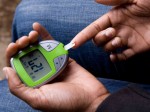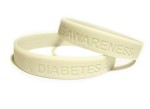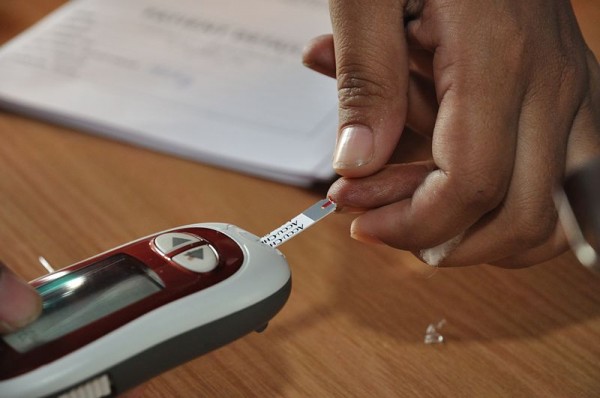Cheese Could Lower Your Risk Of Diabetes
Your CDiabetes.com News Brief for August 10, 2014
Cheese could lower your risk of diabetes
 You might already know that there many different kinds of fat, and that some are better for you then others. Some healthcare providers now say that even fats they used to think were unhealthy might actually be good for you. Saturated fat found in dairy products, like cheese, was shown to lower people’s chances of getting diabetes. Over 340,000 people were tested, and those who ate more dairy had more of a certain kind of saturated fat in their blood that lowered the risk of type 2 diabetes. Other saturated fats did not have the same results, however.
You might already know that there many different kinds of fat, and that some are better for you then others. Some healthcare providers now say that even fats they used to think were unhealthy might actually be good for you. Saturated fat found in dairy products, like cheese, was shown to lower people’s chances of getting diabetes. Over 340,000 people were tested, and those who ate more dairy had more of a certain kind of saturated fat in their blood that lowered the risk of type 2 diabetes. Other saturated fats did not have the same results, however.
Mindfulness training helps keep veterans with diabetes healthier
 It’s already well known that lots of stress can affect your health and make any conditions you have worse. So it’s no surprise that, if you have diabetes, lowering stress helps to keep your blood glucose levels healthier. A recent study of older veterans found that if they were given special training to help deal with stress, their overall stress levels went down by as much as 41%. Even better: their A1C dropped to a lower, healthier level. Using special tricks like careful breathing and meditation, these veterans were able to lower their blood glucose by a large amount.
It’s already well known that lots of stress can affect your health and make any conditions you have worse. So it’s no surprise that, if you have diabetes, lowering stress helps to keep your blood glucose levels healthier. A recent study of older veterans found that if they were given special training to help deal with stress, their overall stress levels went down by as much as 41%. Even better: their A1C dropped to a lower, healthier level. Using special tricks like careful breathing and meditation, these veterans were able to lower their blood glucose by a large amount.
Special coaching can help with depression and diabetes in some patients
 Anyone with a mental health problem will tell you that it can be hard to deal with sometimes, especially if you have another condition at the same time. Depression is common and a lot of people with diabetes struggle with this condition. However, a recent study showed that when people with both of these problems were given special coaching to help cope, their overall health got much better. They were usually less depressed in general and their A1C was at a lower, healthier level than before the coaching. Since this was so effective, healthcare providers are already using it to treat some patients.
Anyone with a mental health problem will tell you that it can be hard to deal with sometimes, especially if you have another condition at the same time. Depression is common and a lot of people with diabetes struggle with this condition. However, a recent study showed that when people with both of these problems were given special coaching to help cope, their overall health got much better. They were usually less depressed in general and their A1C was at a lower, healthier level than before the coaching. Since this was so effective, healthcare providers are already using it to treat some patients.
Job stress could lead to type 2 diabetes
 Many jobs can be very stressful and involve a lot of hard work, which can be a serious problem for your health. They may even lead to diabetes or other, similar conditions, if you’re not careful. A study of over 124,000 people from Helsinki, Finland, showed that those suffered from “job strain,” a problem caused by doing stressful work, were are higher risk of getting diabetes. This was true even if they had healthy lives in general. The risk was high for both men and women, but men had a slightly higher risk.
Many jobs can be very stressful and involve a lot of hard work, which can be a serious problem for your health. They may even lead to diabetes or other, similar conditions, if you’re not careful. A study of over 124,000 people from Helsinki, Finland, showed that those suffered from “job strain,” a problem caused by doing stressful work, were are higher risk of getting diabetes. This was true even if they had healthy lives in general. The risk was high for both men and women, but men had a slightly higher risk.
Mixing the speed of walking controls blood glucose better
 A lot of people like to walk after meals to stay healthy, since it’s easy for most people and doesn’t need any special equipment. If you want to get the most out of your walks, it might help to mix up your walking speeds. A new study showed that people who changed speeds while walking, instead of always walking at the same pace, had lower blood glucose levels. Although lots of intense exercise is better, mixing power walking with slower walking is a good option for people who can’t do hard exercise or struggle to keep it up.
A lot of people like to walk after meals to stay healthy, since it’s easy for most people and doesn’t need any special equipment. If you want to get the most out of your walks, it might help to mix up your walking speeds. A new study showed that people who changed speeds while walking, instead of always walking at the same pace, had lower blood glucose levels. Although lots of intense exercise is better, mixing power walking with slower walking is a good option for people who can’t do hard exercise or struggle to keep it up.
Large weight loss might increase your risk of depression
 Being on a strict meal plan can be stressful for a lot of people. Though losing weight is usually connected to being healthier, especially if a person has diabetes or is obese, some healthcare providers believe it could make you depressed. In a new study, people who lost at least 5% of their body weight were much more likely to become depressed then those who kept a steady weight. However, this doesn’t prove that losing weight leads to depression, and more studies need to be done before anything can be known for sure.
Being on a strict meal plan can be stressful for a lot of people. Though losing weight is usually connected to being healthier, especially if a person has diabetes or is obese, some healthcare providers believe it could make you depressed. In a new study, people who lost at least 5% of their body weight were much more likely to become depressed then those who kept a steady weight. However, this doesn’t prove that losing weight leads to depression, and more studies need to be done before anything can be known for sure.
Fast food and restaurant food could contain the same number of calories
 It’s already well known that eating fast food can be unhealthy, and cause you to gain weight. But did you know that eating at a table service restaurant might not be any better? A study looked at the eating habits of 12,500 Americans and found that people who ate out had more calories then they did at home, and that eating either restaurant meals or fast food made almost no difference. However, some experts say that the study doesn’t look at portion sizes or types of food, so might not have given very good results.
It’s already well known that eating fast food can be unhealthy, and cause you to gain weight. But did you know that eating at a table service restaurant might not be any better? A study looked at the eating habits of 12,500 Americans and found that people who ate out had more calories then they did at home, and that eating either restaurant meals or fast food made almost no difference. However, some experts say that the study doesn’t look at portion sizes or types of food, so might not have given very good results.
Banning vending machines in schools may not be enough
 Obesity is a problem for lots of American children, and many healthcare providers say the problem is getting worse. As a way to help this, some schools have banned vending machines from their grounds so that kids don’t feel tempted to have sugary snacks between meals. However, a recent study showed that if they can still get these snacks from other places, just banning vending machines didn’t make any difference to children’s health. Researchers say that small changes like this aren’t enough to make a difference, and that schools need to do more if they want children to be healthier.
Obesity is a problem for lots of American children, and many healthcare providers say the problem is getting worse. As a way to help this, some schools have banned vending machines from their grounds so that kids don’t feel tempted to have sugary snacks between meals. However, a recent study showed that if they can still get these snacks from other places, just banning vending machines didn’t make any difference to children’s health. Researchers say that small changes like this aren’t enough to make a difference, and that schools need to do more if they want children to be healthier.
Teenagers not sure about using social media to talk about their diabetes
 Healthcare providers are always looking for new ways to help people with diabetes. One of the ways they can do this is by using social media, in the hope that more young people will look for help that way. However, a recent study showed that, though most young people with type 1 diabetes used social media sites like Facebook, only a few used it to talk about their disease or to get help dealing with it. This shows that most teenagers are not sure about sharing their experiences online, especially with people who might not have diabetes themselves.
Healthcare providers are always looking for new ways to help people with diabetes. One of the ways they can do this is by using social media, in the hope that more young people will look for help that way. However, a recent study showed that, though most young people with type 1 diabetes used social media sites like Facebook, only a few used it to talk about their disease or to get help dealing with it. This shows that most teenagers are not sure about sharing their experiences online, especially with people who might not have diabetes themselves.
Learning about blood glucose problems could help prevent them
 For many people with type 1 diabetes, keeping blood glucose at safe levels can be hard to do. Sometimes, if they don’t check their blood glucose levels enough or don’t know it’s a problem, a person’s levels can get too low. This dangerous condition is called “hypoglycemia.” Researchers recently tested 96 people to see how this happened and found that those who were told about this and regularly checked their blood glucose to stop it were less likely to have problems with the condition. This is good news, as awareness could be a big part of stopping serious hypoglycemia from damaging public health.
For many people with type 1 diabetes, keeping blood glucose at safe levels can be hard to do. Sometimes, if they don’t check their blood glucose levels enough or don’t know it’s a problem, a person’s levels can get too low. This dangerous condition is called “hypoglycemia.” Researchers recently tested 96 people to see how this happened and found that those who were told about this and regularly checked their blood glucose to stop it were less likely to have problems with the condition. This is good news, as awareness could be a big part of stopping serious hypoglycemia from damaging public health.













